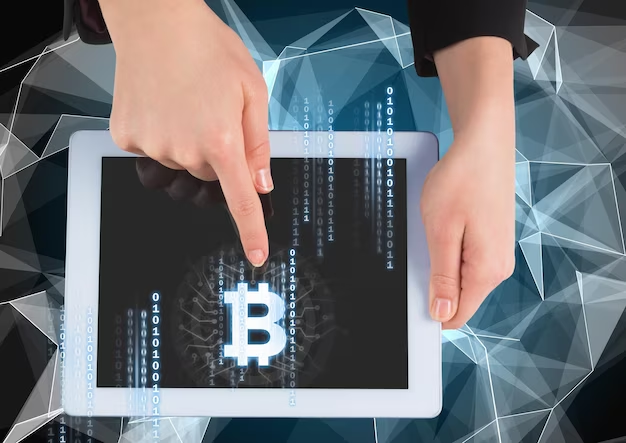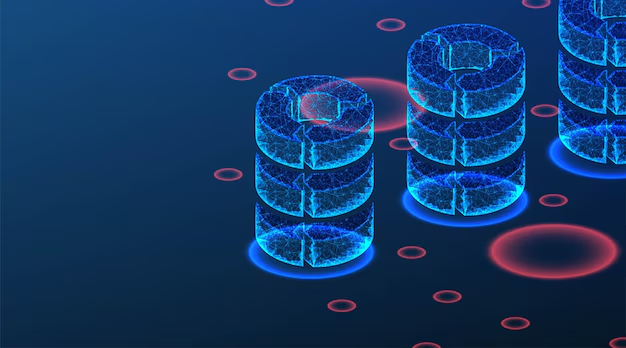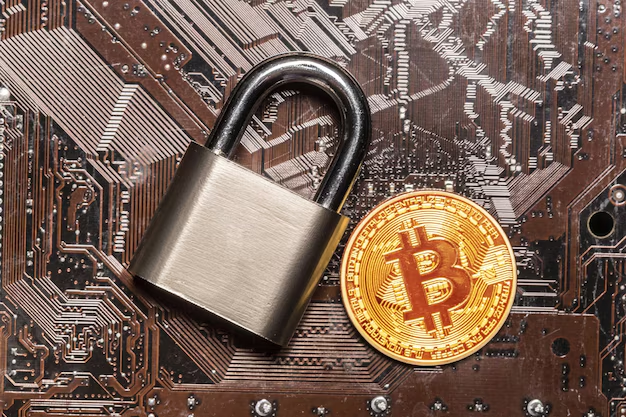Blockchain technology has rapidly emerged as one of the most transformative innovations of the 21st century. While it initially gained widespread attention through cryptocurrency platforms like Bitcoin and Ethereum, its applications have since expanded across a variety of sectors, from finance and healthcare to supply chains and voting systems. Despite the growing interest in blockchain, many people still struggle to understand what it actually is and how it works. This is where a comprehensive Blockchain Course for Beginners can make all the difference.
In this article, we’ll explore the foundational principles of blockchain technology, break down key concepts, and explain why blockchain is set to revolutionize various industries. Whether you’re new to the world of digital ledgers or looking to deepen your understanding of this groundbreaking technology, this guide is designed to offer clear insights into the concepts you’ll encounter in a blockchain course.
Key Takeaways
- Blockchain is a decentralized and distributed ledger technology that ensures secure and transparent transactions.
- Cryptocurrency uses blockchain for secure, transparent, and tamper-proof digital transactions.
- Consensus mechanisms like Proof of Work and Proof of Stake validate transactions and maintain the integrity of the network.
- Smart contracts offer automated solutions, increasing efficiency in areas such as finance, supply chains, and insurance.
- Blockchain’s applications extend far beyond cryptocurrencies, with real-world use cases in healthcare, voting, and identity verification.
- Taking a blockchain course for beginners allows you to understand foundational concepts, opening doors to new career and investment opportunities.
What Is Blockchain?

Before diving into the course structure and content, it’s essential to have a solid understanding of what blockchain is.
At its core, blockchain is a decentralized and distributed digital ledger technology that enables secure, transparent, and tamper-proof recording of transactions or data across a network of computers. Unlike traditional centralized databases, which rely on a central authority to verify and store data, blockchain operates on a peer-to-peer network, where each participant (or node) has access to the same copy of the ledger.
Each “block” in the blockchain contains a list of transactions, and once a block is full, it is added to the chain of previous blocks, forming an immutable record of all activities. This unique structure ensures transparency and security, making blockchain suitable for various applications beyond cryptocurrencies.
Key Concepts in Blockchain Technology
- Decentralization: In blockchain systems, there is no single point of control. Instead, the ledger is maintained by a network of computers (also called nodes). This decentralization removes the need for intermediaries and makes transactions faster and cheaper.
- Immutability: Once a block is added to the blockchain, it cannot be altered or deleted. This creates a permanent record of all transactions, ensuring that any attempt to tamper with the data is easily detectable.
- Distributed Ledger: Every participant in the blockchain network holds a copy of the ledger. If one participant tries to alter their copy, the rest of the network will immediately identify the discrepancy, ensuring consistency and security.
- Cryptography: Blockchain relies heavily on cryptography to secure data and ensure that transactions are legitimate. Each transaction is digitally signed and verified using encryption techniques that make it nearly impossible for unauthorized users to alter or manipulate data.
- Consensus Mechanisms: Consensus mechanisms are the protocols that blockchain networks use to agree on the validity of transactions. Examples include Proof of Work (PoW), Proof of Stake (PoS), and Delegated Proof of Stake (DPoS). These mechanisms ensure that participants reach an agreement without needing a centralized authority.
The Structure of a Blockchain Course for Beginners
A good Blockchain Course for Beginners is structured to take learners from the basics to an intermediate understanding of blockchain concepts. Below, we’ll outline some key components you’ll encounter in such a course:
Introduction to Blockchain Technology
The first section of a beginner’s blockchain course introduces the basic concept of blockchain, its history, and its impact on various industries. Learners will understand the evolution of blockchain, beginning with Bitcoin’s launch in 2009, and how it evolved into the wide array of applications we see today.
Understanding Cryptocurrency
Since cryptocurrencies like Bitcoin and Ethereum are among the most well-known use cases of blockchain, this section provides a deep dive into what cryptocurrencies are and how they leverage blockchain technology for secure and transparent transactions.
Decentralization and Distributed Ledgers
Learners will explore the concept of decentralization in more detail, learning how it works in the context of blockchain networks and why it’s so important. They will also examine how distributed ledgers work and how they differ from centralized databases.
Blockchain Components and Structure
This section breaks down the components of a blockchain, including blocks, transactions, miners, nodes, and the process of mining. Learners will understand how transactions are recorded, validated, and added to the blockchain, as well as how the consensus mechanism ensures network integrity.
Smart Contracts
Smart contracts are self-executing contracts with the terms of the agreement directly written into code. This section introduces learners to the world of smart contracts, their potential to automate processes, and their applications in fields like finance, insurance, and supply chain management.
Security in Blockchain
Security is paramount in blockchain networks, and this section explains the cryptographic principles that underpin blockchain security. Topics covered include hash functions, public-key infrastructure (PKI), digital signatures, and encryption techniques.
Blockchain Applications Beyond Cryptocurrency
The final section of the course explores various real-world applications of blockchain technology beyond cryptocurrency. These include blockchain use cases in industries like healthcare, supply chain management, voting systems, identity verification, and digital contracts.
Why Take a Blockchain Course for Beginners?

- Understand the Foundation of Digital Transformation: Blockchain is a core technology driving digital transformation across industries. By gaining a fundamental understanding, you’ll be better equipped to participate in conversations about blockchain innovation and contribute to projects involving blockchain technology.
- Enhanced Career Opportunities: The demand for blockchain professionals is rapidly increasing. By completing a blockchain course, you’ll position yourself as a skilled individual in a growing field with numerous job opportunities, from blockchain developers to consultants and analysts.
- Personal Investment Knowledge: Whether you’re interested in investing in cryptocurrency or exploring blockchain’s potential for your business, a blockchain course gives you the knowledge needed to make informed decisions and understand the risks and rewards involved.
- Participate in the Blockchain Revolution: Blockchain technology has the potential to change the way businesses and individuals interact globally. With a basic understanding of blockchain, you can explore how to implement blockchain solutions in various sectors, creating the possibility for innovation and efficiency.
Also Read : Understanding Blockchain Wallets: A Comprehensive Guide To Secure Digital Asset Storage
Conclusion
Blockchain technology is at the forefront of digital innovation and is set to transform industries worldwide. As a beginner, understanding blockchain is essential to staying informed about this powerful technology and its potential to revolutionize various sectors. A well-structured Blockchain Course for Beginners provides the foundational knowledge needed to grasp the core concepts of blockchain, cryptocurrency, decentralized networks, and security.
By taking a blockchain course, you’ll be better equipped to navigate the world of digital ledgers and explore opportunities for career growth, personal investment, and technological innovation. As the world moves towards more decentralized solutions, blockchain will remain a critical skill to have in your toolkit.
FAQs
What is blockchain?
Blockchain is a decentralized, distributed digital ledger that securely records transactions across a network of computers. It uses cryptography to ensure data integrity and transparency.
Do I need prior technical knowledge to take a blockchain course?
No, most blockchain courses for beginners are designed for those with little to no technical background. They start with basic concepts and gradually introduce more complex topics.
What are cryptocurrencies, and how are they related to blockchain?
Cryptocurrencies, such as Bitcoin and Ethereum, are digital currencies that rely on blockchain technology for secure, decentralized transactions. Blockchain ensures the transparency and immutability of transactions.
What is the difference between public and private blockchains?
Public blockchains are open to anyone, allowing all participants to validate transactions. Private blockchains are restricted, with permission required to access the network and validate transactions.
How are transactions verified on a blockchain?
Transactions on a blockchain are verified using a consensus mechanism, such as Proof of Work (PoW) or Proof of Stake (PoS). These mechanisms help ensure that all participants agree on the validity of a transaction.
Can blockchain be used for things other than cryptocurrencies?
Yes, blockchain has numerous applications beyond cryptocurrencies, including supply chain management, digital identity verification, healthcare records, and voting systems.
How secure is blockchain?
Blockchain is highly secure due to its use of cryptographic principles and decentralization. Once data is recorded in a block, it is nearly impossible to alter without detection.




